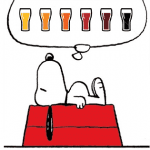This post is also available in:
Español
Português

In the early days of history, there were no hierarchies or private property, only vast savannas to explore and a new world to discover with seemingly endless natural resources. These were the beginnings of what we now understand as humanity.
Communities were fraternal; relationships were erotic, open, friendly, and uninhibited. Such were the times of the first Homo sapiens who walked the planet.
While beer may have been a mere spectator in many significant historical events, it is fascinating to see how it has played a crucial role in others, even altering the course of history.
Contenido
1. Adaptive Advantages
According to Darwin’s theory of evolution, the difference between early protohumans and other mammals is that ten million years ago, a common ancestor with gorillas and chimpanzees underwent a mutation in the ADH4 enzyme, allowing them to digest alcohol without major issues.
This provided a significant adaptive advantage, as the fermentation of fallen fruits offered early humans more nutrients and, why not, a bit of fun.

Later, the mastery of fire allowed humans to control grain mashing and, consequently, develop processes to produce alcohol.
This is when we began paying attention to grains, leading to sedentarization as the need to cultivate more cereal for increased beer production arose.
According to studies at the excavation of Göbekli Tepe in Turkey, the first known large settlement, humans were already fermenting beer 11,600 years ago.
Agricultural societies worldwide have faced worse health conditions than hunter-gatherers: lack of sanitation, cleanliness, diseases, little exercise, and wars. Yet, humans did not abandon their settlements.
2. Sedentarism and Monogamy
In this way, humans entrenched themselves in their homes, built grain storage, and invented private property, including their wives and children, who were necessary for farming and defending territory. They hierarchized society and created the concept of family while continuing to drink beer.

This, of course, had an impact on sexuality, primarily through the establishment of monogamy.
According to historian Rod Phillips:
Humans were expelled from the Neolithic paradise, where there was no sin, where people lived happily without private property, without shame about the human body, without food problems, and in a solidary, selfless, and fraternal social system—all due to knowledge, civilization, egocentrism, materialism, sin, private property, and war.
3. From Nomads to Farmers
It wasn’t until nomadic societies decided to cultivate grain that everything changed. A commercial and dietary revolution was about to take place.

Beer played a significant role in this historical process, as barley was a staple food in the diet of the world’s first settled populations.
4. The Code of Hammurabi
For humanity, maintaining the quality of beer has always been of utmost importance, as evidenced by the Code of Hammurabi. This ancient stone, containing the principles of law, order, and penalties in Mesopotamia, included regulations stating that beer must be governed by law.

These were tough and extreme times, which is why civilizations like the Babylonians strictly followed the Code of Hammurabi, leading to frequent disputes over who brewed the best beer.
However, if a master brewer failed to do their job or if the taste, aroma, and consistency of the beer did not satisfy consumers, they were punished by being drowned in their own brew.
As expected, there were many tasters but few dared to brew beer.
5. Louis Pasteur and Yeast
In the history of beer, it is not necessary to go back centuries of physical and social evolution or establish extreme quality laws. Louis Pasteur is a prime example.
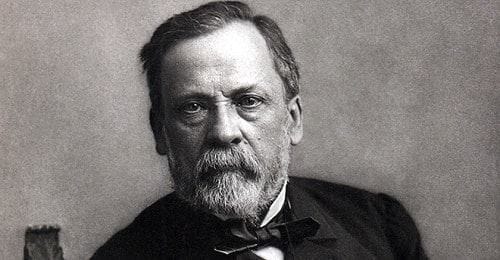
Pasteur was a French microbiologist who discovered the role of yeast in fermentation and also designed the process known as pasteurization. This method involves heating a liquid to 80°C (176°F) to eliminate most harmful bacteria and microorganisms, a process first tested with beer before being applied to milk.
6. Roosevelt’s Presidential Campaign
Beer has also been used for political purposes. In the early 1930s in the United States, the infamous “Prohibition” was in turmoil and on the verge of disappearing, largely thanks to Franklin Delano Roosevelt’s presidential campaign.
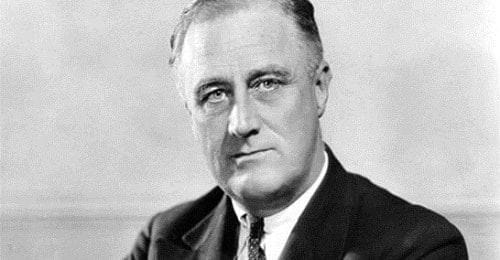
Roosevelt, in his quest to lift the country out of its economic collapse in 1929, promised to repeal this law so that beer-loving Americans would not resort to clandestine activities.
As we have seen, countless moments in history have been shaped by beer, both scientifically and culturally. Some more significant than others, but all influencing our evolution as a society in profound ways.
No se encontraron productos.
The History of Beer in 10 Curious Facts
The history of beer spans thousands of years, and today it is the third most popular beverage in the world, behind water and tea, and the most widely consumed alcoholic drink.
Keep reading for a summarized overview of 10 historical facts about beer brewing. They will make your drink taste even better!
1. The Importance of Women
It wasn’t until the discovery of the malting process, supposedly by Mesopotamians between 2000 and 3000 BC, that beers began to contain significant amounts of alcohol.
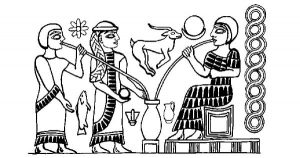
At that time, brewing beer was a noble profession reserved for elite women or priests. Some types of beer were even reserved for religious ceremonies.
2. Beer Bread
The earliest documented beers date back 5,000 years, though they likely tasted quite different from the beers we know today.
The brewing process used by the Sumerians in Mesopotamia resulted in what we now call beer bread: half-baked bread soaked in water to create a fermented drink, often flavored with honey and herbs.
Since it shared the same basic ingredients as bread, it was considered equally nutritious. Some ancient pottery findings suggest that the brewing process dates back even further, around 7,000 years or more.
3. Ancient Egypt
In Ancient Egypt, beer was part of the daily diet. Tombs sometimes reveal stone and wood illustrations of the brewing process.
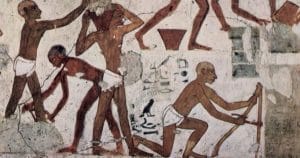
Analyses have concluded that Egyptians knew different types of beer due to the use of various grains. Additionally, beer was often used in medicines and served religious purposes.
4. Beer and Tea
In the 18th century, during the Enlightenment, Europe was an anti-alcohol society. With the rise of coffee and tea, beer experienced a slight decline.
In the U.S., this decline was much more severe due to Prohibition (1920-1933), when consuming alcoholic beverages became illegal, followed by the Great Depression.
American breweries faced significant challenges recovering from these difficult years.
5. Germany
The Romans, who preferred wine, took the brewing process further north.
The Germans were the only ones who found a way to bypass the bread-making process and brewed beer from germinated and dried grains, which they then fermented.
No se encontraron productos.
6. Middle Ages
In medieval Europe, the brewing process was largely reserved for monks, the most educated part of society.

However, beer was a common drink consumed by all social classes for its nutritional value and because it was often safer than drinking water (which was often contaminated).
7. Industrialization
The Industrial Revolution had a significant impact on beer production. With the invention of the steam engine in 1765, industrialization reached beer.
The incorporation of the thermometer (1760) and the hydrometer (1770) made the brewing process increasingly efficient, turning beer into a mass-produced product.
8. Beer in Buckets
The first beer bottle was sold in 1850. Before that, people carried buckets called “Growlers” to taverns to be filled. Some beer bars still preserve this ancient tradition.
9. Beer Marketing
In the 20th century, advertising and marketing played a significant role in the growing popularity of different beer styles.
In sales and auctions of brewery memorabilia, you will always find many advertising posters defining this era—from 1930s brewery signs to typical 1980s advertising mirrors.
10. Weihenstephan
The oldest brewery in the world has been brewing beer for almost 1,000 years. You can find the Bayerische Staatsbrauerei Weihenstephan on the Weihenstephan hill in Germany, where beer brewing began in 1040!
Doesn’t your beer suddenly have a better aroma and more intense flavors? The history of beer is just as fascinating as that of wine.
Recommendations
- Why do some people get drunk faster than others?
- The best selection of natural medicine recipes with beer, hops, and barley


